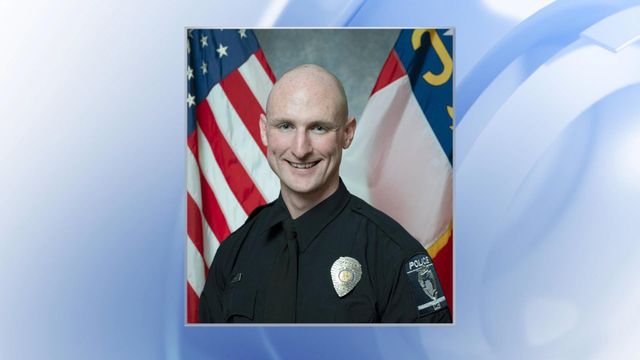Presidential ad spending floods NC

North Carolina's status as a presidential campaign swing state has brought with it a deluge of television advertising that most Tar Heel voters have never experienced.
A review of public files from the Triangle's four largest television stations – WRAL, FOX 50, WTVD and NBC17 – shows presidential candidates and their allies spent $5.4 million in the Raleigh-Durham market this June and July.
Although estimates vary, estimates from outlets such as National Journal and the Washington Post peg statewide television ad spending on the presidential campaign in North Carolina this year at roughly $31 million, with more on the way.
Experts estimate 2012 will be the most expensive national election ever, once spending on the presidential race and Congressional contests are taken into account.
"I think it's fair to say that a majority of those ads are meant to define the opponent in a negative way," said Jonathan Kappler, who tracks political activity for the N.C. Free Enterprise Foundation, a nonprofit that analyzes how politics affects the state’s business environment.
He has tracked 53 different advertisements related to the political campaign since late 2011. Those ads have stepped up in both frequency and variety this summer, marking a change from four years ago.
In 2008, Kappler said, the Democratic presidential primary roared into North Carolina as then-Senators Barack Obama and Hillary Clinton battled for the nomination. After that race was over, he said, North Carolina still received visits from candidates and their surrogates, but advertising spending hit a lull.
"This year is very different," Kappler said. Both campaigns have kept up a steady stream of spending throughout the summer, both on broadcast and cable channels. According to WRAL-TV's research, broadcast advertising in the Triangle area during June and July breaks down as follows:
- Mitt Romney / RNC: $1.5 million
- Barack Obama / DNC: $2.1 million
- Outside groups: $1.5 million
That totals to about $5.4 million in spending during summer months that have traditionally provided a respite from intense political campaigning in North Carolina.
"It doesn't feel unusual to me," said Bob Biersack, a senior fellow with the Center for Responsive Politics, a nonprofit that helps track spending on political campaigns at all levels.
North Carolina voters, he said, are being hit with the same ad deluge that voters in Florida, Ohio and Pennsylvania have seen for several presidential cycles.
There are between nine and 11 states that are the keys to victory for President Obama and presumed Republican nominee Mitt Romney this fall, depending on which assessment of ad spending is examined.
North Carolina is in the mix with Colorado, Iowa, Nevada, New Hampshire, Ohio, Pennsylvania, Virginia and Florida. Wisconsin and Minnesota are also getting attention from some conservative groups.
Although campaigns spend money on staff, direct mail, Internet presence, travel and dozens of other items, television spending tends to be one of the biggest line items in a national campaign and the one that voters most often notice.
That's not necessarily a bad thing, said Brent Laurenz, executive director of the N.C. Center for Voter Education, a group that lobbies for greater transparency in campaigns and civic involvement by voters.
Television commercials can help educate voters, he said.
"But too often what we see are these negative attack ads that are on shaky ground with the facts," Laurenz said. That's true, he said, of Republicans, Democrats and the campaigns themselves as well as outside groups.
"I think one important difference (between 2012 and 2008) is that with these outside groups a very small number of individual people can be so financially involved in the process," Biersack said.
Recent court decisions have cleared the way for outside groups – those not directly affiliated with a candidate or political party – to spend more than ever on television ads. Those group are often funded by a few very wealthy donors.
Americans For Prosperity, for example, recently announced it would spend $27 million to urge voters to oppose Obama. That group is largely funded by a pair of brothers who made billions of dollars from their energy company. But gaps in disclosure requirements can make it unclear exactly how much AFP has raised or is spending.
In the Triangle this summer, more than a quarter of all political ad spending has come from groups not directly controlled by candidates or political parties.
"We don't get a full picture of what's going on, particularly with some of these outside groups that come in and do advertising," Laurenz said.
A complex web of federal laws and regulations govern spending on political ads and where and when that spending must be reported. The most current information comes from companies that use technology to track when and where ads air, and that typically charge a great deal for that information.
It's not always clear what the money spent on political ads is buying.
Biersack said there are very few truly undecided voters. All of this spending, he said, is aimed at influencing them, wherever they may be and whatever they may be watching.
Steve Green, a political scientist with N.C. State University, said researchers aren't entirely clear on which campaign ads work or why.
"What's the difference in seeing a Romney commercial every six minutes and an Obama commercial every nine minutes? I don't think we know," he said. What's clear, though, is that both sides aren't taking any chances with not being on television.
If orders already placed with television stations are any indication, those knowledgeable about campaigns said voters should expect to see even more political ads this fall, both from presidential campaigns and those running for offices lower down the ballot.









